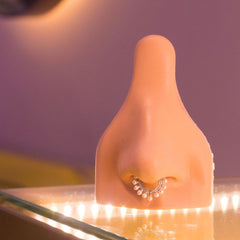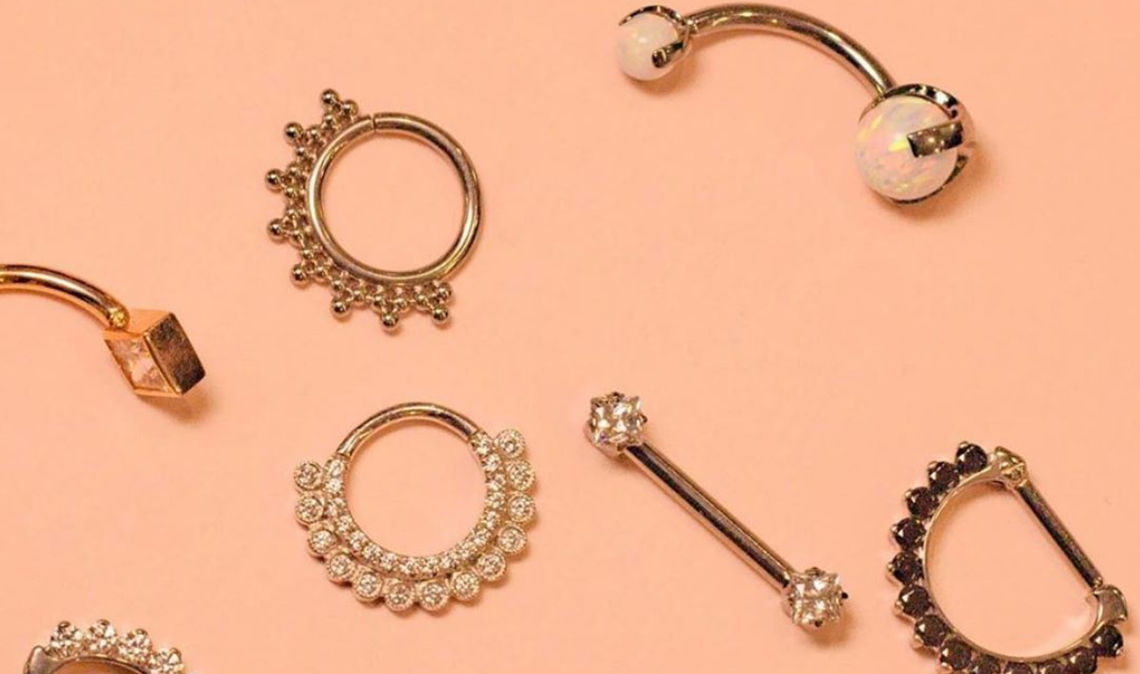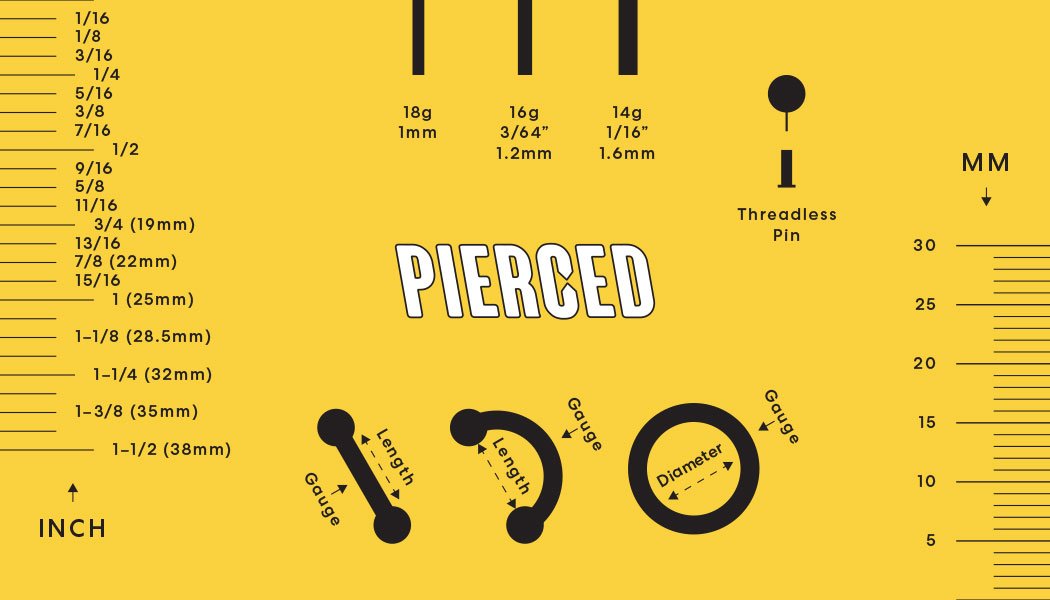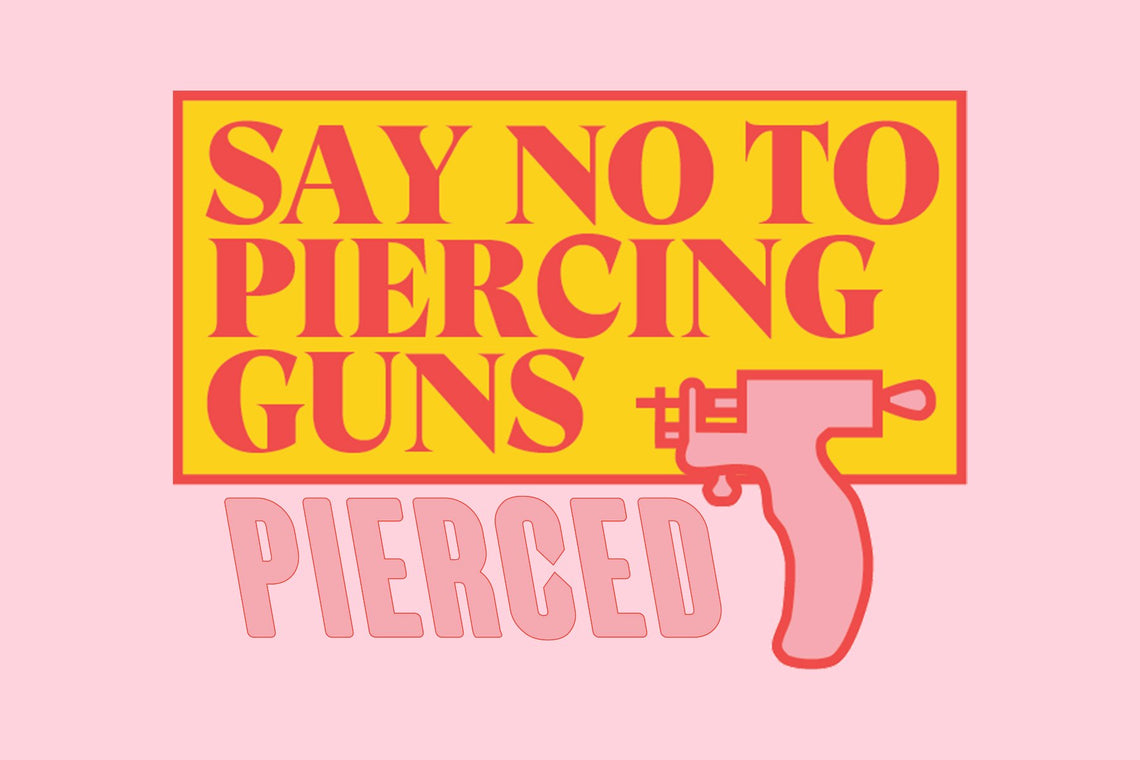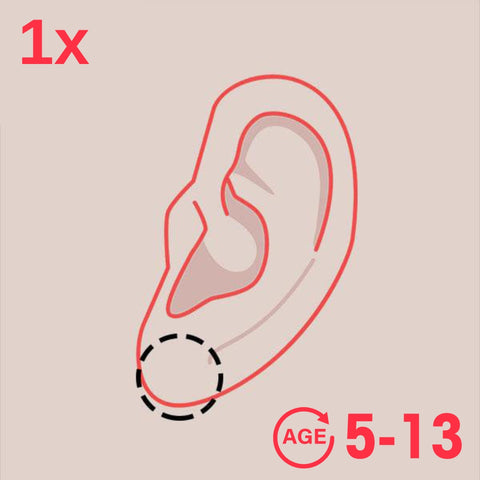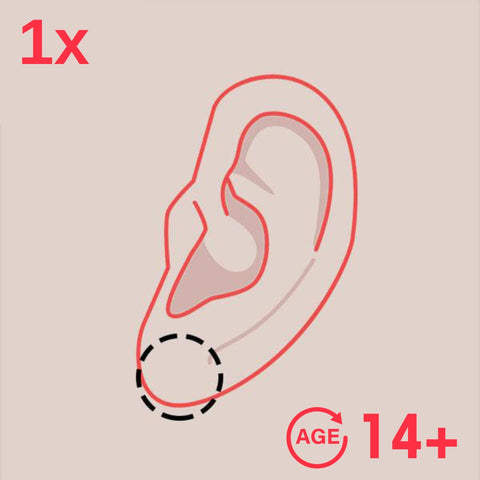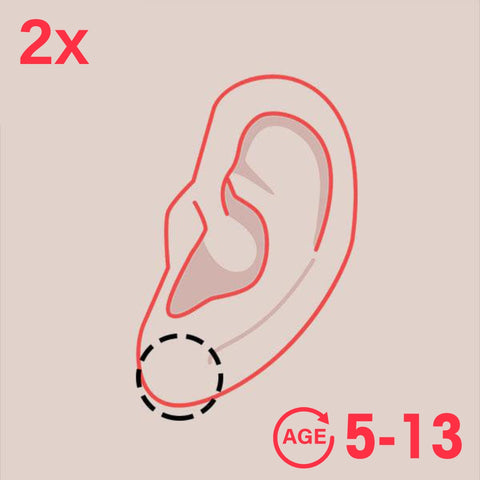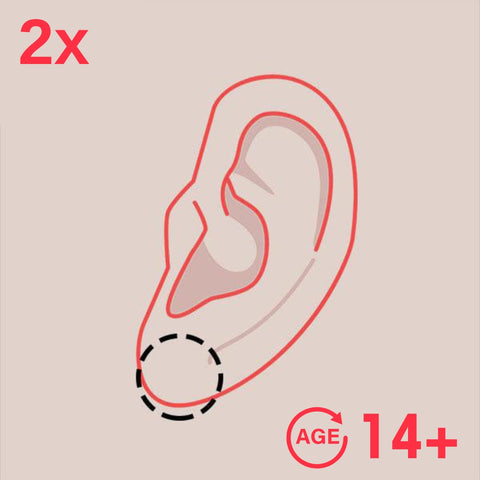So you finally took the leap and a got your nose pierced. Congratulations! Now it’s time for the aftercare. By now you should have your saline solution at the ready, and have listened to all the instructions provided by your piercer.
Like any other body piercing, nose piercings carry the risk of infection. Recognizing the signs of an infected nose piercing is crucial to prevent complications and ensure proper healing. In this comprehensive guide, we will delve into the topic of nose piercing infections, discussing their causes, symptoms, treatment options, and preventive measures.

Understanding Nose Piercing Infections
When you get a nose piercing, the body treats it as an open wound. Infection can occur when bacteria or other microorganisms enter the wound. It's important to distinguish between normal healing and an infected piercing. An infected nose piercing may exhibit symptoms such as pain, redness, swelling, discharge, and unusual odour.
Causes of Nose Piercing Infections
Most infections originate due to bacteria invading in places it doesn’t belong. If your piercer uses a piercing gun, for instance, your piercing site may take more tissue damage and be introduced to more bacteria--it’s almost impossible to fully sterilize a piercing gun.
FUN FACT: At Pierced we only use professionally sterile needles, never “guns”

-
Contaminated Tools and Jewelry: Using unsterilized piercing equipment or low-quality jewelry can introduce harmful bacteria to the piercing site.
-
Poor Aftercare: Neglecting proper aftercare practices, such as failure to clean the piercing regularly or touching it with dirty hands, can introduce bacteria and increase the risk of infection.
-
Allergic Reactions: Some individuals may experience an allergic reaction to certain metals used in nose jewelry, leading to inflammation and infection.
-
Trauma or Injury: Accidental trauma or injury to the nose piercing can disrupt the healing process and make the piercing susceptible to infections.
Preventive Measures for a Healthy Nose Piercing
-
Follow Proper Aftercare: Adhere to the aftercare instructions provided by your piercer, which typically include cleaning the piercing twice daily with a saline solution and avoiding touching it with dirty hands.
-
Choose High-Quality Jewelry: Opt for high-quality, hypoallergenic jewelry made from materials like surgical stainless steel, titanium, or 14k gold to minimize the risk of allergic reactions and infections.
-
Maintain Good Hygiene: Wash your hands thoroughly before touching your nose piercing or changing the jewelry to prevent introducing bacteria.
-
Avoid Excessive Movement or Trauma: Be cautious when cleaning or changing jewelry, as excessive movement or trauma to the piercing can lead to infections.
-
Avoid Swimming in Public Pools or Hot Tubs: Public pools and hot tubs may harbour bacteria that can infect your piercing. It's best to avoid these until your piercing has fully healed.

Recognizing the Signs and Symptoms
- Redness and Swelling: In the early stages of infection, the piercing site may appear red and swollen, indicating inflammation.
- Pain and Discomfort: Infected nose piercings can cause localized pain, tenderness, and a throbbing sensation around the piercing.
- Discharge: Pus-like discharge with a yellow or greenish color and an unpleasant odor is a common sign of infection.
- Increased Sensitivity: An infected nose piercing may become more sensitive to touch and pressure.
If you develop a fever, skip the self-treatment and get yourself to a doctor ASAP-- fevers mean the infection has moved beyond your piercing.
Minor infections can, however, be treated at home. If a few days pass with no improvement, you may want to swing by your piercer’s parlour--they know what to look for and can let you know if the reaction is normal or if you should head to your doctor’s office or an urgent care centre.
Treatment Options for Infected Nose Piercings
-
Consult a Professional: If you suspect your nose piercing is infected, seek advice from a professional piercer or a healthcare provider with experience in body piercings.
-
Saline Solution Soaks: Soaking the piercing in a saline solution (a mixture of non-iodized sea salt and warm distilled water) can help cleanse the area and promote healing.
-
Antibacterial Ointments: In some cases, a healthcare professional may recommend applying an over-the-counter antibacterial ointment to the infected piercing.
-
Avoidance of Harsh Products: Avoid using alcohol-based solutions, hydrogen peroxide, or strong antiseptics, as they can irritate the piercing further and delay the healing process.
Remedy for Nose Piercing Bumps and Healing
Many people swear by tea tree oil when it comes to treating an infection or just treating a bump at the piercing site. Before you try, you should know that some people experience allergic reactions. If tea tree oil works for you, however, it can significantly shorten your healing process or dry out a piercing bump and clear it away.
Test for a reaction before applying the oil to your nose. Simply dab a diluted amount on your forearm and wait 24 hours. If you don’t feel any irritation or see any swelling, then you are clear to apply tea tree oil to your piercing.
Saline and sea salt solutions are also a favourite among both piercers and medical professionals alike. This solution is natural, cost effective and simple to prepare. Best of all it is not harsh on the skin and creates an isotonic environment that can actually enhance healing while eliminating bacteria.
Finishing the Healing Process
Now that you’ve treated the infection, your piercing should heal as normal. Remember, if the infection doesn’t fade after a few days of the treatment regimen, then you may need to see a doctor. Some infections are stubborn little gits that delve deep beneath the skin; your doctor can prescribe an antibiotic or other medication to help clear it up.
Don’t hesitate to use some Advil, Aleve, or other of your preference to help relieve the pain and swelling while you treat an infection. Let’s face it, they can be pretty painful. You still need to be able to go about your day without constantly being reminded of the infection.
Conclusion
Maintaining a healthy nose piercing requires knowledge, vigilance, and adherence to proper aftercare practices. By understanding the causes, recognizing the signs and symptoms of an infected nose piercing, and following the treatment and preventive measures discussed in this comprehensive guide, you can ensure a safe and successful piercing experience. Remember to consult professionals like Pierced for expert advice and support throughout your healing journey. With the right care, you can enjoy your stylish nose piercing while minimizing the risk of infections.
Piercing Studios Near You
Mississauga
Square One Shopping Centre
100 City Centre Drive, Mississauga,
ON L5B 2C9
Phone
+1 (905) 232 -7226
Need an Experienced Piercer in Mississauga?
Working with an experienced piercer can make all the difference when it comes to your piercing experience. If you’re in the Mississauga, Ontario area and have any questions about ear piercing, body piercing or jewelry, give us a call or stop by our piercings studio today. We’d love to help walk you through what to expect and help you choose the right option.


